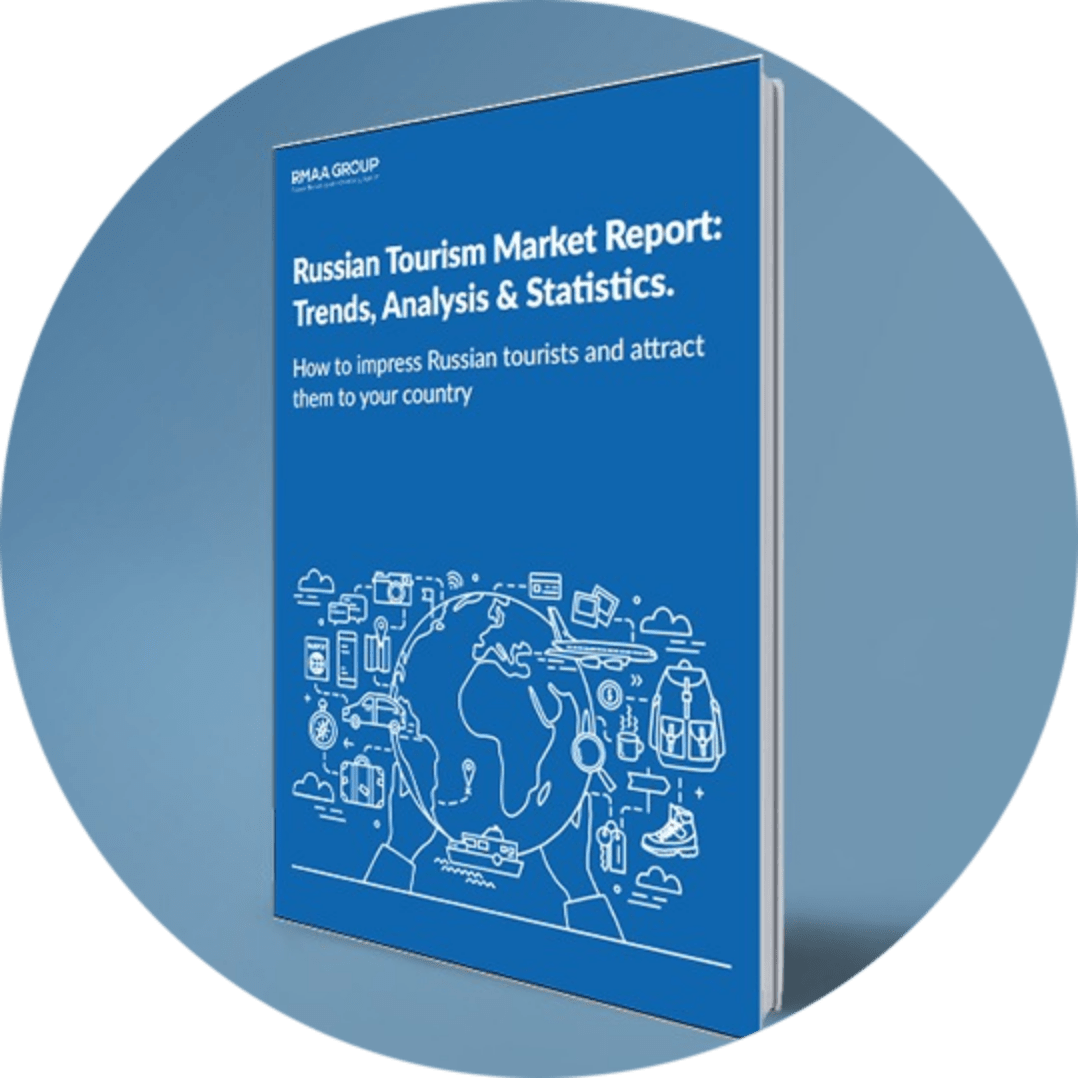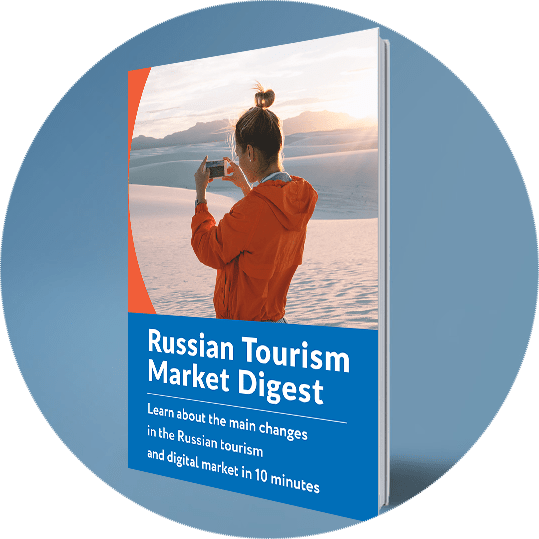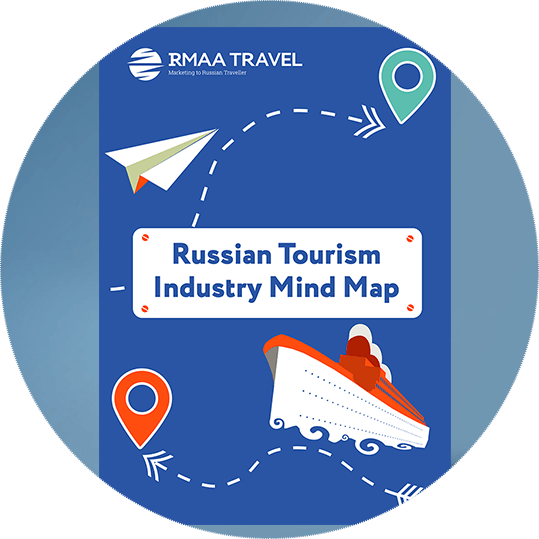Blog about successful marketing strategies in russia
Most Russians Use the Internet to Organize Their Own Travel Around the Country


DIGITAL MARKETING
Share this Post
Russian tourists today quickly determine the direction of their vacation and come to the place with a ready-made plan. They plan their own trips, and they are three times more likely to use the Internet than travel agencies to choose a holiday destination and make an activity plan. These are the results of a study by the NAFI Analytical Center*.
The main channel for finding information about an upcoming trip is the Internet: through it, Russians choose a place to travel (61%) and make a list of places to visit on vacation (78%). Russians use other ways of planning a trip less often. Thus, 23% of Russians ask for advice from relatives or friends about where to go on vacation or for the weekend. 19% turn to travel agencies, and 10% ask for advice in a thematic group in social networks.
"Imagine that you are planning your vacation or weekend trip in Russia. How will you choose a holiday destination?", in % of all Russians surveyed*
|
|
in % of all respondents |
|
I will look for options with the help of search engines (Yandex, Google) |
61 |
|
I will ask for advice from relatives or friends |
23 |
|
I will contact a travel agency and ask them to offer me vacation options |
19 |
|
I will ask for advice in a topic group on social networks |
10 |
* The sum of the answers exceeds 100%, because the respondents could give several possible answers.
Russians are quick with the choice of the holiday destination. More than half (62%) spend a week or less on choosing a destination for a trip, and every third (34%) is determined in 1-3 days. Only 12% of Russians spend more than a month to choose from.
The majority of Russians (60%) come on vacation with a ready-made plan of what places are worth visiting. Women are more likely to have such a plan than men (64% vs. 52%), and more likely to use the services of a tour guide (49% vs. 28%). And those who find themselves at the place without a plan will seek advice from the hotel staff, local residents, and study online maps.
"Imagine that you came on vacation without a clear plan. How will you look for interesting places that you will visit during your trip?", in % of all Russians surveyed*
|
|
in % of all respondents |
|
When I come on vacation, I already have a plan to visit interesting places |
60 |
|
I'll look for information about interesting places in electronic maps (Google, Yandex, and Maps.Me) |
18 |
|
I'll ask at the hotel reception what to visit |
14 |
|
I'll ask the locals for advice |
11 |
|
I'll search for information on the Internet (specify where) |
9 |
|
I'll contact the travel company at the place |
8 |
|
I'll look for information in the guidebook |
7 |
Irina Ivankova, Director of Tourism and Transport Research at the NAFI Analytical Center:
"In the modern world, the Internet is the main channel of communication with tourists. That is why any tourist service should be widely represented on the Web.
In the tourism industry, there is quite a high competition, so you need to make a description of the service on the Internet as much as possible to sell. You should specify all the important information for tourists – from the composition of the service, contact details and opening hours, to reviews and photos. Specifying the price and the possibility of online purchase will also help a particular offer not to get lost among the many similar options."
Source: NAFI
Travel Research
The Russian Tourism Market Report: Trends, Analysis & Statistics | 2019. How to impress Russian tourists and attract them to your country

Ready to partner with the specialists in Russian travel marketing and advertising?
About the Author
Head of Digital, editor-in-chief of the RMAA Agency Blog
Join 2,000+ of your Peers!
Get our latest articles delivered to your email inbox and get our exclusive White Paper "Digital Marketing in Russia. Finding your customers on the internet" for FREE!
You will be the first to know about Russian marketing insights,
news and updates from our agency.
Stay tuned!
We're updating our website's design step by step, so some pages may look different. Thank you for your understanding.
Got it
















